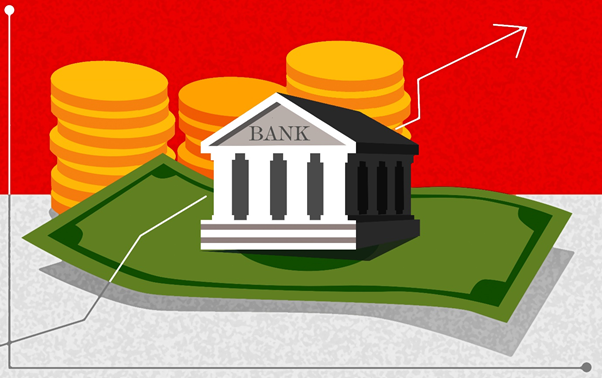Custodian
Updated on 2023-08-29T12:01:12.427460Z
What do you mean by Custodian?
Custody is a supervisory administration that an institution provides to accommodate a client's financial assets. A custodian or a custodian bank is a monetary foundation that holds clients' securities for supervision to keep them from being taken or lost. The overseer may have stocks or different resources in the electronic or real structure.
For an expense, the establishment gathers profits and interest and continues from security deals and dispenses assets per the client's directions. Custody services provided by a bank typically incorporate the repayment, protection, and announcing of clients’ assets and money. Securities loaning can allow a client to make extra money on guardianship resources by advancing protections to endorsed borrowers on a transient premise.

Copyright © 2021 Kalkine Media
Understanding Custodian
Since they are liable for the wellbeing of resources and protections worth many millions or even billions of dollars, caretakers, in general, are enormous and respectable firms. In another context, an overseer might be named to deal with the resources of a minor kid. Investment firms regularly use caretakers to defend the resources they oversee for their customers.
Most overseers offer related administrations, for example, account organisation, exchange settlements, an assortment of profits and interest installments, tax services, and foreign portfolio management. The expenses charged by overseers differ contingent upon the administrations that the customer needs. Organisations charge quarterly guardianship expenses dependent on the total worth of the possessions.
The Custodian may reserve the option to affirm ownership of the resources whenever required, frequently related to that of a lawyer. This allows the overseer to perform activities in the customer's name, like making installments or adjusting ventures.
These institutions depend totally on their reputation to obtain business. In the past, custodians who knew about foreign monetary conditions and were not attracted by the allure of payoffs or intrigue won the trust and were trusted as a protected pair of hands for putting away funds. Trust, above cash, was the genuine money of custodianship, and word and reputation made a difference more than any other thing.
The trust factor and their reputation have been critical factors for custodians before the new era. As technological advancements started to happen, trust and other factors lost their value. The human component of faith was continuously taken out from the custodial condition, and in its place, guidelines were formulated that hypothetically held all organisations to a similar high standard. This implied people didn't have to keep a relationship with any single caretaker. However, they could browse a scope of establishments that should all be similarly reputable. Custody had transformed from an individual commitment to a generic communication with a profoundly controlled framework. This empowered another degree of monetary intricacy to arise that made the baffling universe of banking considerably more separated from everyday reality.
In the US, probably the most prominent banks that offer custodian services incorporate the Bank of New York Mellon, JPMorgan Chase, State Street Bank and Trust Co., and Citigroup. Abroad, the most popular banks are Bank of China (Hong Kong), Deutsche Bank (Germany), Barclays (England), Credit Suisse and UBS (Switzerland), and BNP Paribas (France).

Copyright © 2021 Kalkine Media
In situations where venture consultants are answerable for client reserves, the guide should observe care rules set out by regulatory authorities. In a nutshell, the individual or element should be viewed as a certified caretaker. That restricts the field to banks, enrolled representatives, enlisted sellers, and sure others or entities. Notices should be provided to clients when specific exercises are led for their sake. Standard record articulations should be provided to the clients.
Frequently Asked Questions
What are the benefits to have a custodian?
The benefits of having a custodian are as follows:
- The risk is comparatively on the lower side as custodians these days are established institutions.
- It is a time-saving and cost-effective method as everything has transformed digitally, and the electronic system helps them to transfer financial assets and documents without hassles.
- The settlement process is efficient. No physical documentation is required, which contains the risk of property loss or theft during the transfer process.
- Usually, custodians have more time in the financial markets than the regular participants to approve or reject a transaction.
- Custodians also offer other services such as transaction administrations, tax services, foreign exchange administrations, account management, and others.
- Many custodians also offer legal services.
- Custodians generally enable the trustee/manager to maintain full compliance with the resources.
- They protect clients' resources if the assigned trustee is insolvent or on the verge of bankruptcy.
How does a Custodian for a minor function?
If a record recipient is a minor, an overseer is required at a regular basis. In such cases, the overseer might be a capable individual instead of an organisation. The overseer has the power to settle on speculation choices regarding the resources in the record. However, the assets are eventually expected for utilising exclusively by the named recipient.
Each record can have just one recipient, the minor record holder, and one caretaker, an assigned grown-up agent. The caretaker is present until the recipient arrives at adulthood. Others can add to a minor's record. However, they have no authority over how the assets are overseen whenever they are saved.
What is a mutual fund custodian?
A mutual fund custodian is a trust organisation, a bank, or a comparative monetary foundation that is answerable for holding and defending the protections claimed within a shared asset.
A mutual fund's Custodian holds resources for supervision and can likewise provide a scope of administrations, including legal services, accounting, back-end services, compliance management, foreign exchange services, and transfer agency services.
Usually, in the case of mutual fund custodians, the securities are held with the Custodian rather than the fund itself so that the risk of any malpractice can be reduced.